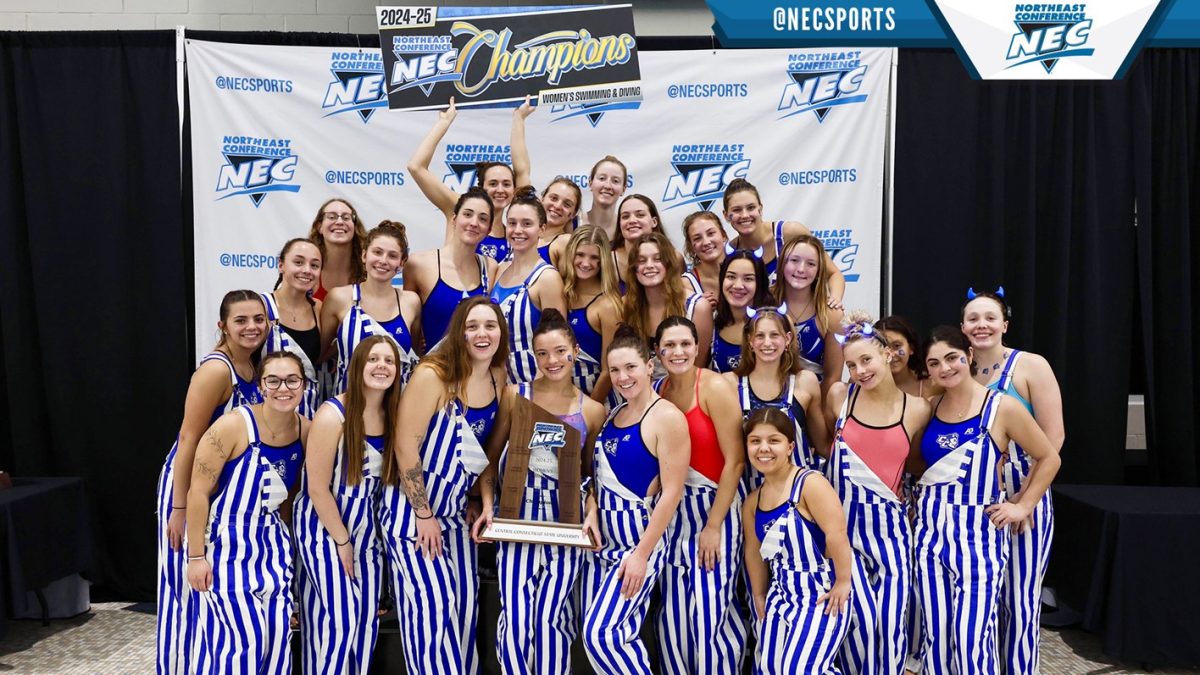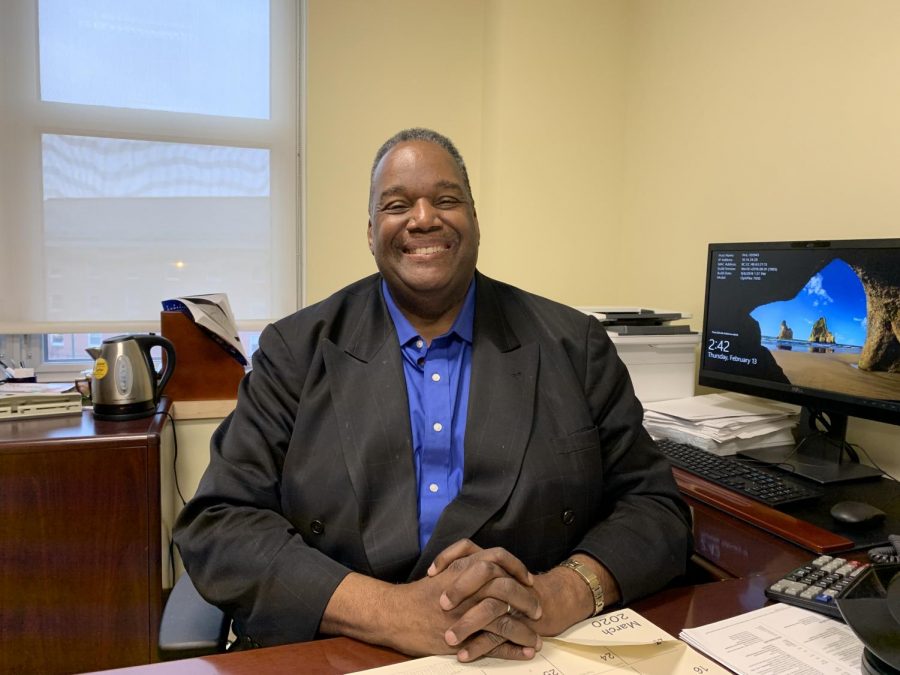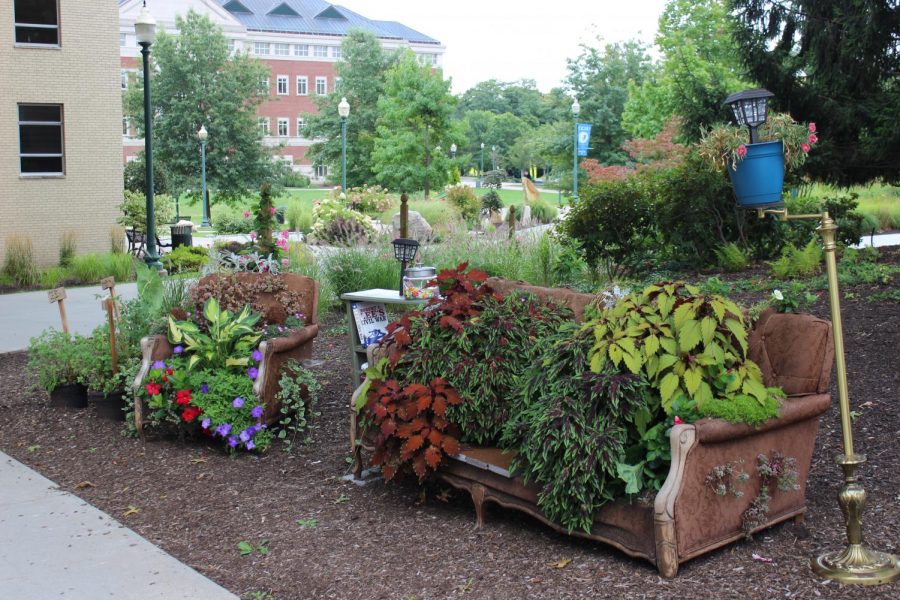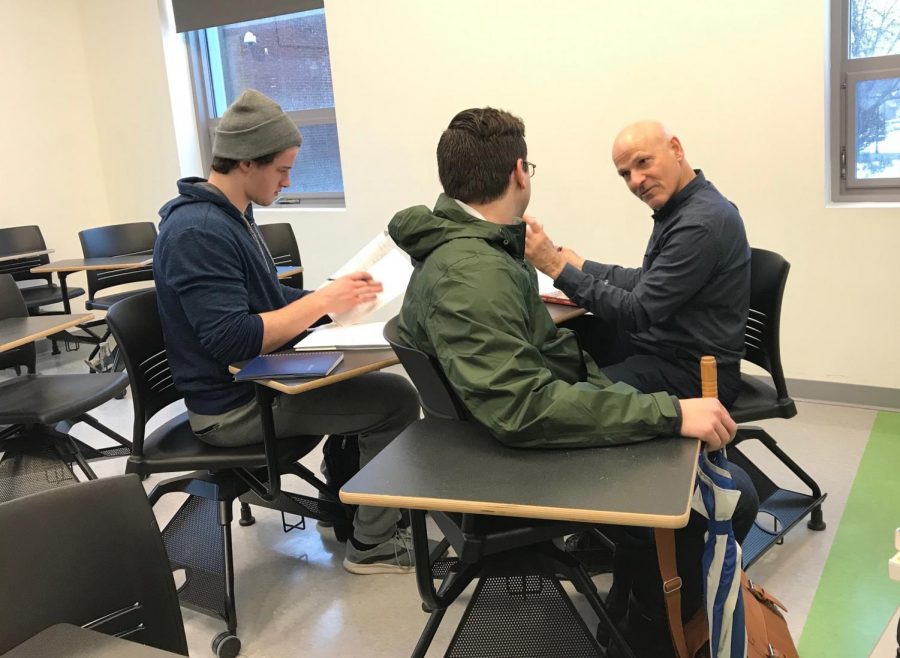by Angela Fortuna
Many people say that the sound of poetry is more important than the words, but that is not the aim of the poet, according to Central Connecticut State University professor Maria Passaro.
Many know Passaro as an Italian professor at CCSU, but she is also an author.
Passaro’s books tend to have the same theme. She takes a famous poem that is written in the original Italian language and translates it into English, sentence by sentence. The only exception of this Italian to English translation is with her first book, based on an Italian tragedy, published in 1997, where she provided the Italian translation.
“My books tend to be in the original and translation,” said Passaro. “I don’t want to sacrifice the meaning of the poem. I am just trying to [translate] the poem closer to what the poet is saying.”
During Passaro’s 28 years at CCSU, she has written many books and articles. Currently, she is the director of the Italian Resource Center on campus.
With a doctorate in comparative literature and a master’s degree in Italian, Passaro is very knowledgeable in literature and Italian translation. After many years of experience, Passaro’s writing style comes naturally to her.
Passaro previously taught Italian grammar and literature at Fordham University.
Passaro enjoys writing and translating works of Henry Wadsworth Longfellow. In some book reviews, Longfellow’s work was often seen as more beautiful in Italian than in English.
“Longfellow translated from Italian to English in his original works,” said Passaro.
Although there are many books published that transform the language of literature, Passaro’s books are different. She translates the Italian as closely as she can to the English language so readers can get the full effect of each poem.
“Some of the translated books don’t put the original [poem] purposely, so you don’t check,” said Passaro.
Of Passaro’s 11 books, her most recent translation was of “Corradino,” a tragedy by Francesco Mario Pagano, published in 2014.
Passaro also recently translated the poem “Rhymes of Love” by Renaissance poet Torquato Tasso.
Another recent book Passaro wrote is called “Representation of Women in Classical, Medieval and Renaissance Texts.”
“It’s not a feminist book, it just [portrays] the beauty of women and how it molds the soul of the poet,” said Passaro. “I’m giving credit to women for what the poets did.”
One of Passaro’s personal favorite poems includes “Michelangelo” from “The Complete Poetical Works of Longfellow.” She wrote a translation into Italian verse of “Michelangelo”.
“If you read it, you will see the beautiful iambic pentameters,” said Passaro.
Passaro has also published dozens of articles and essays, including a few journalistic publications.
“I have many essays where I just contribute a chapter,” said Passaro. “Working with other people is nice.”
Passaro also recently wrote a short nine-line poem, called “L’Europa Unita” in Italian, which in translates to “United Europe.”
The most recent book in progress has two parts: “A Selection of Medieval Italian Literary Texts” and “A Selection of Renaissance Italian Literary Texts.” The sections are separated by time period, from beginning to end. Passaro is still unsure if the two books will be combined at this point.
She said she taught Italian courses 470 and 476 using the material she will be publishing.
“I also put it online so students could see both Italian and English if they had trouble,” said Passaro.
When asked about what kind of poems she likes to use in the classroom, Passaro said she likes to “stay with one act plays because they’re easy to represent.”
As for the future of book translation, Passaro remains hopeful that the most important texts will continue to be translated.






